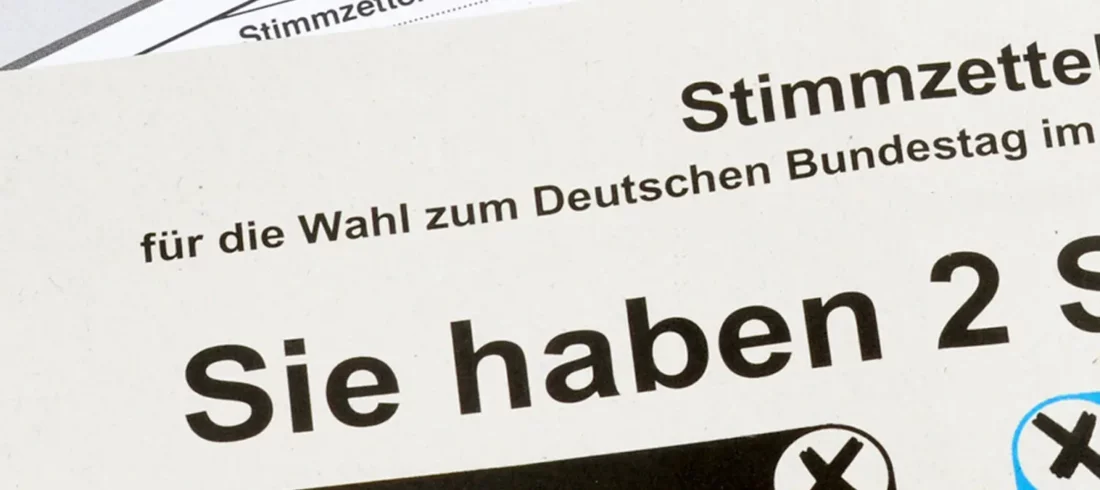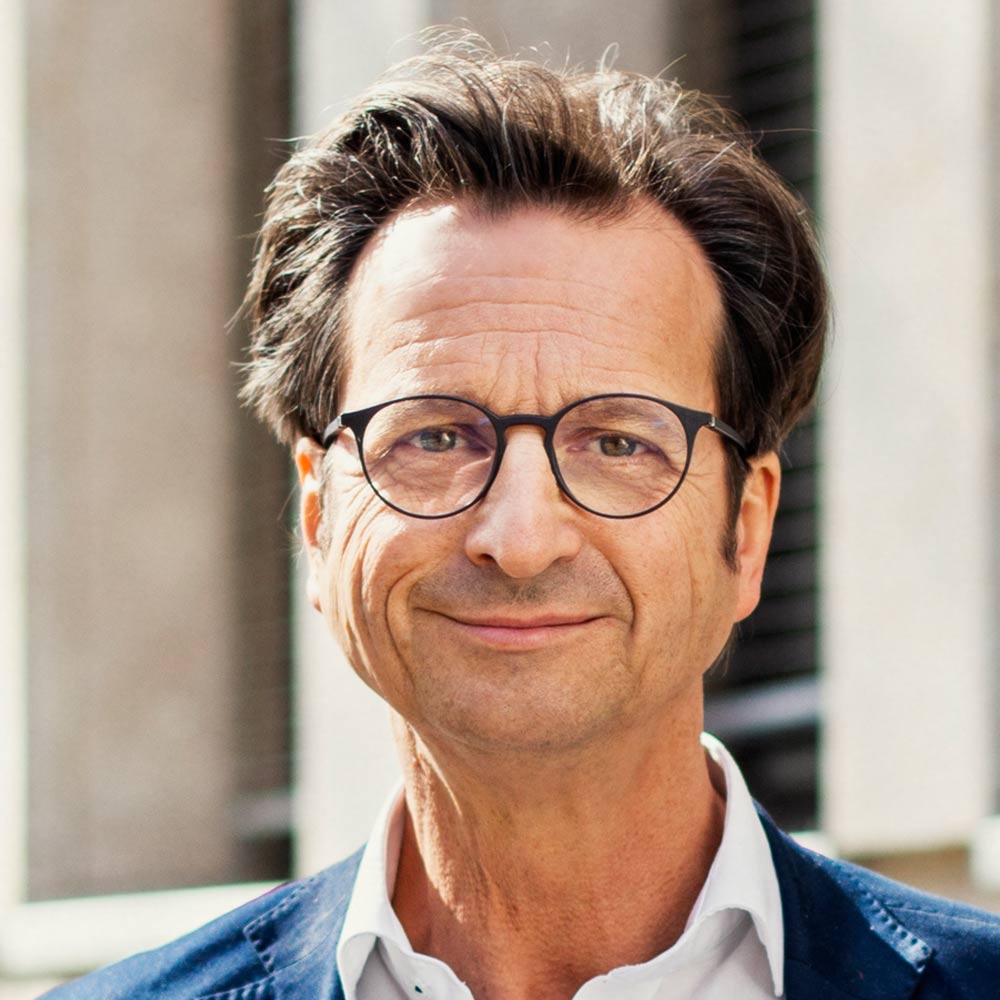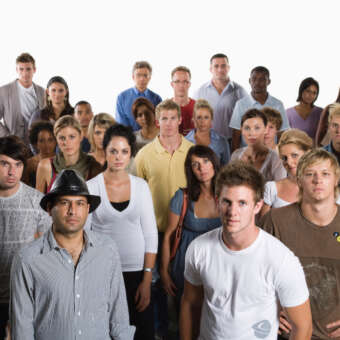Politicians should resolve mental dilemmas on behalf of others
Results of the depth-psychological rheingold study on the 2021 federal election
Six weeks before the election, the crisis-ridden electorate is primarily concerned with getting a grip on everyday life. Instead of a spirit of optimism, they are retreating into their own shells. The global and national problems and challenges of the century that are piling up beyond the private sphere are plunging people into a fatal dilemma of feasibility. On the one hand, they have realized since the flood disaster at the latest that major changes are on the horizon, not only to be able to cope with the climate crisis. However, voters are reluctant to accept the associated restrictions and efforts.
With regard to the election, people have developed ambivalent strategies to resolve the personal feasibility dilemma. "On the one hand, they are looking for a candidate who will take on the upcoming Herculean task and lead them powerfully out of the problems," analyzes Stephan Grünewald, "on the other hand, they state with a mixture of disappointment and relief that such a leadership figure simply does not exist and that neither Annalena Baerbock nor Armin Laschet or Olaf Scholz is up to the task." Sometimes the candidates and Kandidat*innen are downright belingeredet: "Annalena Baerbock, has it messed up, Laschet is too lax and Scholz too proud,". The supposed weakness of the candidates relieves the voters of the need to show strength and consistency in the face of huge challenges.
The irrevocable end of the Merkel era with its reassuring "business as usual" intensifies the enormous pressure for change already felt and the current feasibility dilemma, Grünewald continued. The candidates and the parties are perceived less in terms of concrete content and programs. Rather, they represent different strategies for dealing with the feasibility dilemma.
According to the study's findings, it is therefore almost impossible to make precise election forecasts. Many voters are stuck in their inner dilemma - committing to a party and thus a possible solution requires too much decisiveness from them. "As in no previous election, citizens are thinking in terms of coalitions, and many would prefer to split their votes," explains Grünewald.
On the sample and method of the study:
Since 2002, rheingold has regularly conducted its own study about 6 - 8 weeks before the Bundestag elections. Within the scope of this study, 50 voters are put on the couch: In two-hour psychological in-depth interviews and group discussions, they are intensively asked how they experience the mood in the country and the election campaign.
As a qualitative study, the depth-psychological study is not representative in the statistical sense. However, it aims to represent the essential aspects, moments of meaning and motivations that determine the current election campaign and the current attitude of voters. It does not provide a percentage election forecast, but provides background information for understanding by tracing the mood in the country and describing what voters are consciously or unconsciously concerned about and how they perceive parties and politicians.
When selecting the test persons, care is taken to ensure that party preferences and sociodemographic structures (gender, regional distribution, age distribution, education and occupation) are represented as accurately as possible. The in-depth explorations are conducted and analyzed by a team of five psychologists.
The results of the rheingold study in detail:
Voters are not currently in a mood for change! Many experience the election campaign as a distant and distant event that is hardly perceived and does not really grip and affect the citizens. After a year and a half of the Corona crisis and the associated restrictions and uncertainties, most people are currently trying to regain control of their everyday lives. While mainly the younger ones enjoy the summer freedoms or celebrate in a compensatory way, for the older ones self-stabilization, finding a new rhythm in the Corona everyday life and self-efficacy in the familiar neighborhood are significant.
Overall, self-reference increased among voters during the Corona period. A global or national perspective was largely replaced by a view of the immediate surroundings, the neighborhood, the family or one's own needs. Many have retreated, symbolically, into their private shell. In here, they find stability, security and trust. But when they reach out of their shells, most people feel almost overwhelmed by the magnitude of the problems: Flood disasters, forest fires, corona numbers rising again, advancing Taliban. And alongside the global problems, national issues are piling up, from the question of affordable housing to secure pensions, and there is growing concern about a split in society.
In the face of such "challenges of the century," people sense that simply carrying on as before will no longer work, but that major consequences are required that will mean restrictions and changes in lifestyle for individuals. The associated losses and sacrifices frighten voters. Because they have no idea or plan how to solve the problems that are brewing. They are stuck in a fatal feasibility or realization dilemma: Although they recognize the urgent need for change and action, they are at the same time too fearful or too comfortable to translate it into a decisive willingness to act.
The dilemma of realization is currently manifesting itself in an almost resigned mood. Angela Merkel's departure reinforces this sense of hopelessness. For over 16 years, "Mother Merkel" promised a caring and reassuring "business as usual. She stood for the idea that problems could either be worked through without alternative or vision, or simply sat out. The irrevocable end of the Merkel era increases the enormous pressure for change that is already being felt and intensifies the current feasibility dilemma.
Most voters do not deny that something needs to be done, especially in terms of climate protection, but they shy away from the challenges involved. They therefore usually develop ambivalent strategies to resolve the personal feasibility dilemma: On the one hand, they look for a candidate who will take on the Herculean task ahead and powerfully lead them out of the problems. On the other hand, they are trying to prove that such a leader does not exist and that neither Annalena Baerbock nor Armin Laschet nor Olaf Scholz is up to the task: "Baerbock screwed up, Laschet is too lax and Scholz is too proud.
Voters invest a great deal of energy and oratory in downplaying the leading candidates. In essence, the CDU is seen as a strong and reliable party, but Armin Laschet is considered too soft or even too lax. In the opinion of many voters, his laughter in the flood disaster area has discredited him in terms of respect and statesmanship. Annalena Baerbock is considered too young and inexperienced, and in view of her rookie mistakes in the election campaign, doubts are being raised that she can get the Greens or even the country behind her. Scholz is considered competent and experienced, and at present he is benefiting greatly from the mistakes of others. However, he is associated with a party that has become irrelevant in the grand coalition.
However, the disappointment of voters that this time only damaged doers are running and that the wrong candidates have prevailed, especially in the CDU and the Greens, is often accompanied by a sense of relief. The supposed weakness of the candidates relieves voters of the need to show strength and consistency in the face of huge challenges. The logic of small talk therefore continues when voters are asked to imagine Markus Söder or Robert Habeck as candidates for chancellor. Söder is then described as "assertive and authoritarian," but also as an unpredictable and opportunistic flag in the wind. Habeck is seen as competent and even-tempered, but also as too sweet and cuddly.
The candidates and the parties are currently perceived less in terms of concrete content and programs. Rather, they represent different strategies for dealing with the feasibility dilemma.
Armin Laschet and the CDU - Keep it up with minor corrections
Merkel's promise of constancy is still associated with the CDU. The party promises to carry on as before without major upheavals and losses. Armin Laschet, as a rather good-natured and soft politician or "Rhineland cheerful nature," cushions great hardships. His agility and ability to work in a team also promise a productive coalition with the Greens and the FDP. However, Laschet's laugh, which almost every voter remembers, has clearly diminished his stature and seriousness. In the eyes of many voters, the jovial figure has become a "joke" who, especially in the foreign policy arena, "can't keep up with Putin, Biden or Macron.
The CDU campaign usually does well in its visual style. The small circle symbolizes the personal snail shell and promises safety and security. The openness of the circle and the colorful transitions of the German colors counteract the hermeticism and open up scope for future developments.
Annalena Baerbock and the Greens - beautifully colored green future
The Greens are considered to be the most credible and forceful campaigners in the fight against climate change. In the eyes of the voters, they demand harsh consequences and restrictive measures. Therefore, they represent both the change claim and the feasibility dilemma in the eyes of all voters. The admonitions and concepts of the Greens do not leave people cold, but challenge them to take a stand and to work on the party in a pro or con logic.
As a result, the Greens are very polarizing and are sometimes seen by non-voters as a party of renunciation or prohibition that is rigid and aloof. However, the new leadership duo of Habeck and Baerbock means that the Greens no longer seem so ideological, strict and ascetic, but rather closer and more sensual. Voters are particularly interested in the good complementary relationship between the two. Annalena's decisiveness and commitment are moderated by Robert's calm and experience.
Many green voters are also moderate and not very missionary. They often emphasize not so much the sacrifices to be made, but rather develop an almost paradisiacal idea of a traffic-calmed world full of harmony and in harmony with nature.
The Green Party's campaign takes up this harmonization bandwagon and literally engages in green whitewashing. Robert Habeck and Annalena Baerbock stand side by side like "little brothers and sisters" or "Adam and Eve" and promise a gentle transition to a paradise-like future.
Christian Lindner and the FDP - Progress as Redemption and Freedom Gain
Christian Lindner is the FDP in the eyes of the voters. The party leader promises to resolve the feasibility dilemma by promoting future technologies and digitization. In this way, Lindner ultimately proclaims the promising message that people do not have to make major changes to their lives, but that the technological innovation power of the German economy can solve the problems.
Lindner is seen as an antagonist to the "overreasonable" demands and moral appeals to conscience of the Greens. He fascinates voters not only with his boyish charm and rhetoric, but also with his promise of freedom and relief. In view of the great challenges and reminders, he represents the inner child of the voters, who can also defiantly defy the law, shirk responsibility or act in a self-indulgent manner. Lindner's self-portrayal, which also sometimes appears "narcissistic" in the FDP campaign, also gives his voters permission to open up space for their own self-referentiality.
Olaf Scholz and the SPD - constant work-away and large financial bridging funds
At the beginning of the election campaign, Olaf Scholz was the invisible third party. Voters saw him as "unimpressive, cool, lifeless and academic. Since Armin Laschet's laughing faux pas, Scholz has visibly become the laughing third party, precisely because he doesn't laugh. Now his "competence, seriousness and statesmanship" are coming more into focus. In the eyes of voters, Scholz now best fulfills the promise of constancy associated with the CDU. With his "cool, reserved manner," he is often seen as the most suitable Merkel replacement. He mitigates the feasibility dilemma with a mixture of "diligently working through or removing the mountain of problems" and unpacking the "financial bazooka," which could possibly be used to mitigate the greatest hardships of change.
However, many people do not associate Olaf Scholz directly with the SPD. Voters may have him on their minds, but they will not find him on the ballot. Despite or because of its participation in the grand coalition, the SPD is counteracting Merkel's promise of constancy, because as a party it has visibly diffused in the alliance with the CDU/CSU: All social initiatives are credited to Merkel's account. The SPD stands more for internal squabbles and unfulfilled promises. It is often still spontaneously associated with the "betrayal of the workers" through Agenda 2010 and Hartz IV.
AfD - Future means a return to "normality
It is often unclear to voters who the current top personnel of the AfD are. As a party, it often serves as a projection screen for everything that has gone wrong in politics or in their own lives and urgently needs to be changed. The AfD is therefore an alternative or a catch-all for many who feel unseen, disrespected or have the impression that politics does not take their everyday concerns into account. By voting for the AfD, people want to teach the other parties a lesson, but they also want to express their longing for strong leadership, commitment, clear rules and standards.
The AfD lifts the feasibility dilemma by denying or talking down the global problems (climate change, pandemic). Above all, in its very effective campaign, which is experienced as being close to everyday life, it conjures up the re-establishment of a German measure of normality. In this way, it suggests to the voters that Germany is not suffering from the major world problems, but from the small and self-made problems of political correctness, gender, migration and multi-culti idealization, the dissolution of traditional role models or climate hysteria. In the face of a world that has become confusing, the AFD promises voters a return to a "manageable and familiar Germany" in which "the world was still in order. Sometimes it remains unclear whether this role leads backwards to the 80s, the 60s, or the 30s.
The Left - No Answer to the Feasibility Dilemma
Many voters do not have the Left Party on their radar, and the party does not seem to have a coherent strategy in the feasibility dilemma in the eyes of the citizens. Even among left-wing voters, the party's top personnel is hardly known. Many still associate Gregor Gysi or Sarah Wagenknecht with the party. All in all, the party appears to lack leadership and a concept. Only the core voters are clearly committed to the left.
The left can score points with some demands, such as the minimum wage of 13 euros, but they often stand more for "intellectual remoteness from reality" or "ideological defiance. Thus, they do not so much inspire hope for social justice as stoke fears of loss. Redistribution, which many potential left-wing voters see as necessary, is currently overshadowed by concerns about Germany's economic weakening.
Voters* develop a take 2 or take 3 logic to balance the feasibility dilemma
Decisive election forecasts are almost impossible at present, because many voters are still undecided. In view of the feasibility dilemma, it is difficult for them to decide on a party and thus a possible solution to the dilemma. As in no previous election, citizens are therefore thinking in terms of coalitions. Many would prefer to split their votes in order to cook their own coalition soup.
In most cases, the individual coalition recipe contains three components:
- The CDU and meanwhile also Olaf Scholz stand for constancy and for a flexible "Keep it up.
- The Greens should take up the claim of change and implement moderate efforts against the climate crisis.
- The FDP should ensure that personal freedom and leeway are preserved in the process.





